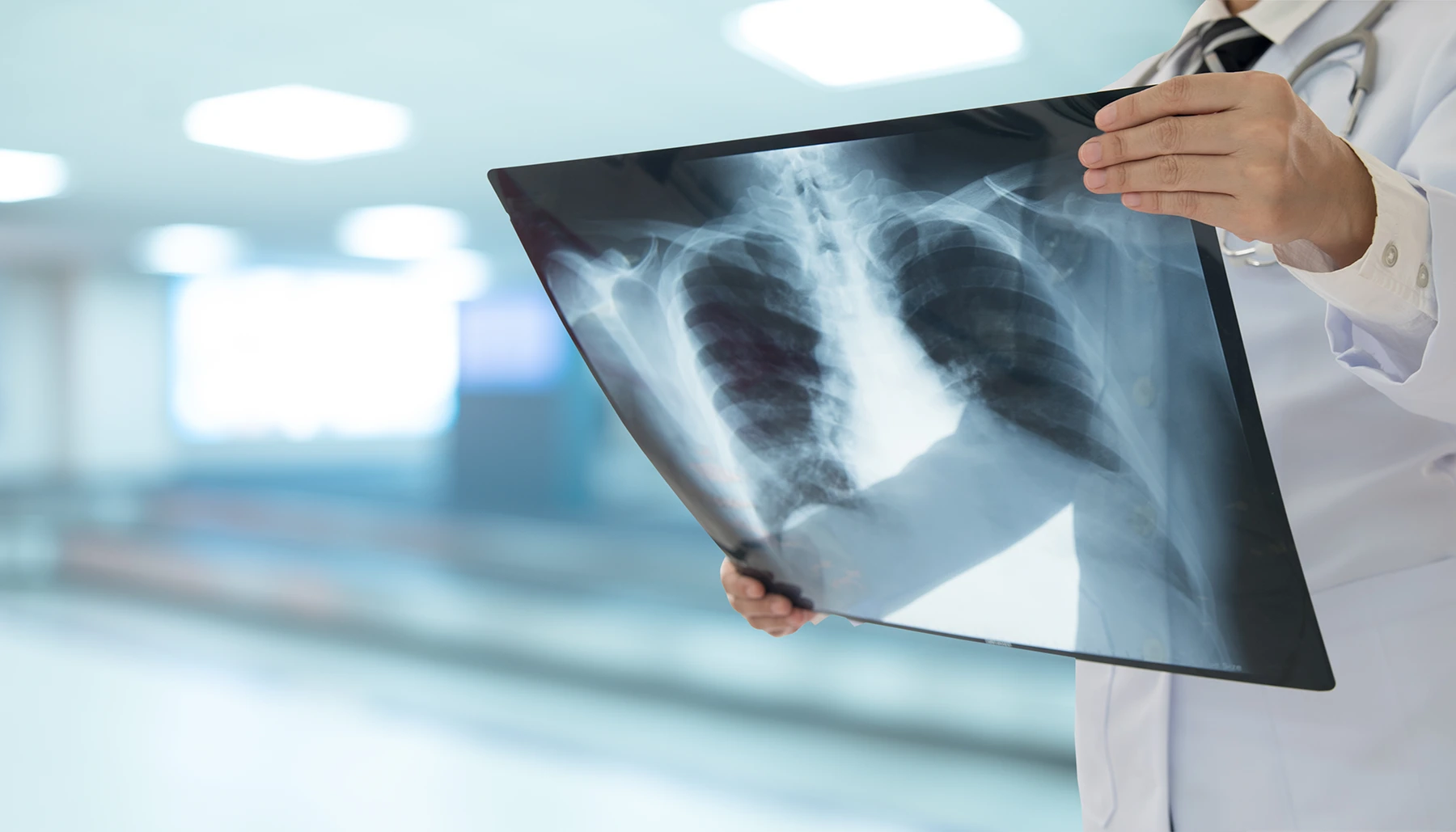Lung Cancer Screening Saves Patient’s Life and Inspires Advocacy

When doctors discovered a nodule growing inside one of Islara Souto’s lungs in 2023, it appeared to be a clear sign of lung cancer, the leading cause of cancer deaths nationwide. Specialists at Sylvester Comprehensive Cancer Center, part of UHealth – the University of Miami Health System, determined that the nodule was indeed an adenocarcinoma. This malignant tumor develops in the glandular tissues and can quickly spread throughout the body.
But when her doctor called her to break the news, Souto’s reaction was somehow subdued. “It was a little bit of a shock,” she says.
Regular screenings made a difference.

How did Souto remain so calm after receiving a call that normally upends people’s lives? Because Souto, who had smoked for decades, had been visiting Sylvester every year for over a decade to undergo a comprehensive lung cancer screening designed to detect exactly those kinds of growths early on, she explains. Radiologists had been tracking tiny nodules in her lungs and were able to spot one that had started growing. A surgeon conducted a robot-assisted surgery to remove the tumor and a dozen nearby lymph nodes, and now Souto is cancer-free and back to her regular life.
Souto knew that without the screenings, she would have discovered some kind of cancer when it was already too late.
“How am I going to feel a nodule in my lung?” she says. “How am I going to know? I’ll know when I start coughing, when I start losing weight and when the symptoms show up. And by then, it’s usually very severe.”
Precision medicine based on DNA
Sylvester has been providing lung cancer screenings since 2011 to catch cancers when they’re still treatable. Patients undergo a brief, low-dose CT scan that’s reviewed by radiologists at Sylvester, which is one of only four National Cancer Institute designated cancer centers in Florida.
Nicole Gay, APRN, a lung cancer screening navigator at Sylvester who worked with Souto throughout her diagnosis and surgery, says lung screenings are most effective when patients come each year so that radiologists can track nodules and determine if there have been any changes or growth over the previous year. Early detection also means patients have more treatment options, from surgery to chemotherapy to an ever-expanding world of precision medicine being developed at Sylvester that caters therapies to each patient based on their DNA.
Fear prevents patients from getting screened.
But even though people regularly get mammograms, colonoscopies and prostate exams, Gay says people are often hesitant to get a lung cancer screening out of fear of what they’ll find or financial worries over the costs of late-stage cancer treatment.
“And sometimes individuals feel shame associated with the fact that they smoked cigarettes,” she says. “That is a hard ask for them to come in and have these discussions where we’re going to talk about their history of smoking and lung cancer screenings and possibly finding cancer. It definitely can be anxiety driving.”
Who should get screened?
Lung cancer screenings are recommended for individuals who currently smoke, those who have quit within the past 15 years and people over 50. The screening is entirely covered by Medicare and most private insurers, often without the need for a deductible payment or a referral from a primary physician.
Souto encourages anybody at risk to sign up for annual lung screenings because they saved her life. While she wasn’t surprised that she developed cancer, she was impressed by how quickly and effectively her team at UM was able to remove the cancerous tumor and get her on the road to recovery.
“My experience was excellent,” she says. “It was very good, very efficient.”
A turn toward advocacy
Ever since, Souto says she’s taken a new approach to life. She spent her career in health care working for the Florida Department of Health, the American Heart Association, and the Health Council of South Florida. She even served as a manager of cancer partnership programs at Sylvester. Souto had scaled back her work in recent years, but her cancer experience rekindled her desire to help people.
She restarted her health consulting firm, which trains community health workers. And her children encouraged her to become a more vocal advocate for people to get lung cancer screenings.
“I felt I had not done enough,” she says. “My children said, ‘Mama, if you can do something to help people, this might be the most important thing you’ve done. Go for it.’”
Alan Gomez is a contributor to UHealth and Sylvester.
Tags: cancer care in Miami, early detection, Islara Souto, lung cancer screening, Sylvester Comprehensive Cancer Center
